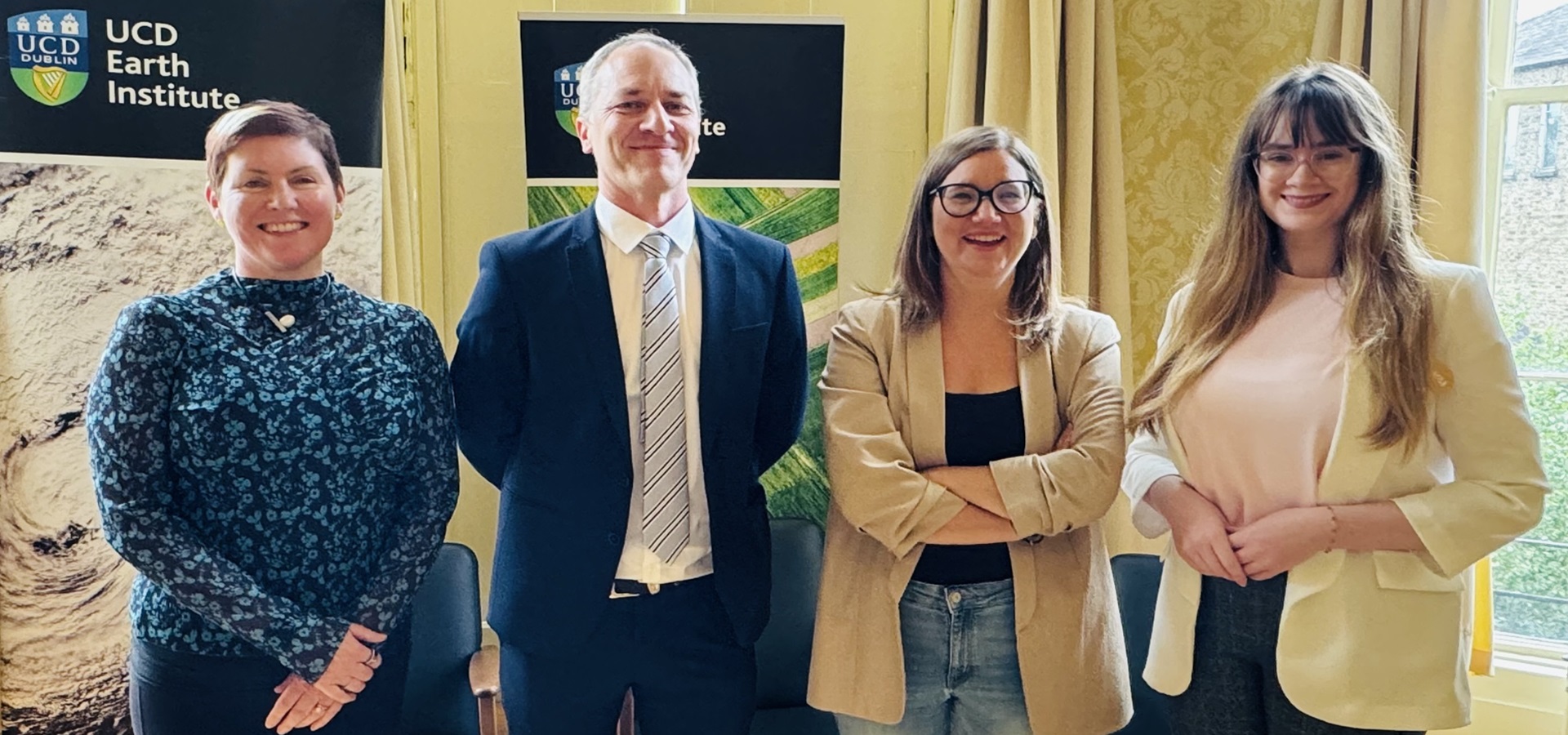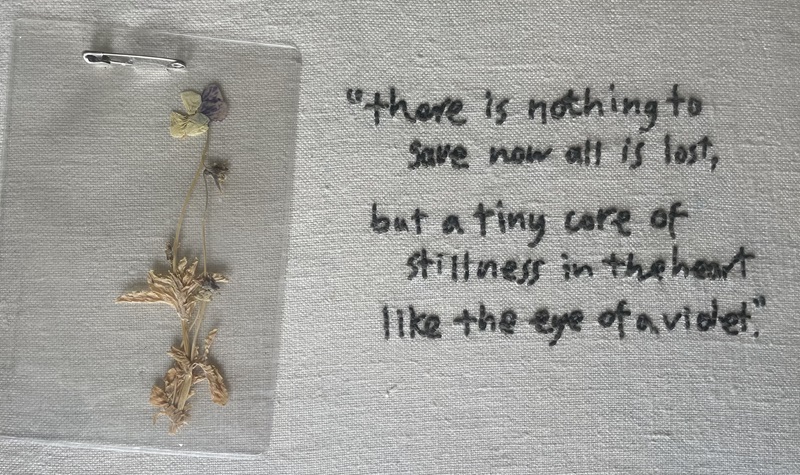UCD Earth Institute response to new Programme for Government
UCD Earth Institute Strategic Priorities align strongly with new Programme for Government
The UCD Earth Institute fosters multidisciplinary research and works with stakeholders to address global, regional and national environmental challenges. It is committed to high quality interdisciplinary research to improve fundamental understanding of our rapidly changing environment and to find solutions for a sustainable future. We have over 100 members and 200 associate members, spanning the range of disciplines in science, engineering, humanities and social sciences.
Programme for Government
The Earth Institute welcomes the inclusion of several policy objectives in the new Programme for Government ‘Our Shared Future’ which align closely with our own Strategic Priorities, which provide a topical focus for interdisciplinary activity linked to our eight research themes across the Institute, the university and beyond.The following aspects of the Programme for Government connect particularly strongly with specific Strategic Priorities as follows and we hope these projects will be able to contribute to the
development and implementation of policy.
Town centre regeneration (Town Centres First): Our Strategic Priority scheme funds the Centre for Irish Towns (CfIT), an emergent trans-disciplinary centre for research and collaboration focused on the towns of the island of Ireland. The new centre is led by Orla Murphy and Dr Philip Crowe who have been involved with research and advocacy relating to towns over many years.
“Irish towns are ideally placed to facilitate sustainable development in terms of social inclusion, environmental sustainability and economic development”.
- Dr Philip Crowe and Orla Murphy(CfIT project leads)
The viability of fibre crops such as hemp: we host the newly established HempHub, a knowledge hub focused on hemp research at UCD and other Irish institutions. It aims to establish a cross-disciplinary group of researchers that jointly focuses on investigating the environmental, genetic,pharmacological and engineering properties of hemp as well as the societal implications of its use.
“Hemp is an extremely versatile plant that has the potential to increase the sustainability and resource efficiency of modern agriculture.”
-Dr Rainer Melzer and Dr Antoinette Perry (HempHub project leads)
Support farmers to embrace farming practices that are beneficial environmentally, that have a lower carbon footprint, and that better utilise and protect natural resources: the Strategic Priority funded DIVERSICROP is exploring how underutilized grain crops produced in Europe have thepotential to provide a resilient food supply in the context of a changing climate while at the sametime being more nutritious and improving diets.
“To minimize the impact of climate change on food security, we need to diversify crop production and to sustainably produce nutritious food. Our project is exploring crop
diversification from the perspective of crop sciences, culture and society, nutritional impact and policy-making”- Dr Sonia Negrao and Dr Meriel McClatchie (DIVERSICROP project leads)
In addition, the Climate-Resilient Agri-Environmental Systems (CRAES) project led by Dr Ibrahim Khalil aims to improve understanding of agricultural systems, their role in climate change and environmental degradation; and the influence of management practices and climate change on the systems themselves and the wider environment. CRAES is organising an International Symposium on Climate-Resilient Agri-Environmental Systems in Dublin from 3 to 6 November 2020. The theme of this symposium is “Contributing to the United Nations Sustainable Development Goals (UN-SDGs)” with a multi-disciplinary collaboration of academic, industrial andpolicy actors working on the development of a pollution-free, climate-resilient and sustainableagroecosystem.
The vital part played by research as the basis of sound policymaking across Government: ECOBROKER, led by Dr Tamara Hochstrasser, aims to link research with practice in environmental policy, management and governance at a local level, to create a systematic and accessible means for practitioners and researchers to exchange knowledge on priority questions of societal importance.
Beyond the Strategic Priority projects themselves, our members are involved in projects and centres which address a wide range of other objectives within the Programme, covering topics such as coastal management and adaptation, blue carbon, the circular and the bio- economy, water quality, clean air, retrofitting, renewable energy, biodiversity, peatland rehabilitation, just transition, transport infrastructure and many others.

